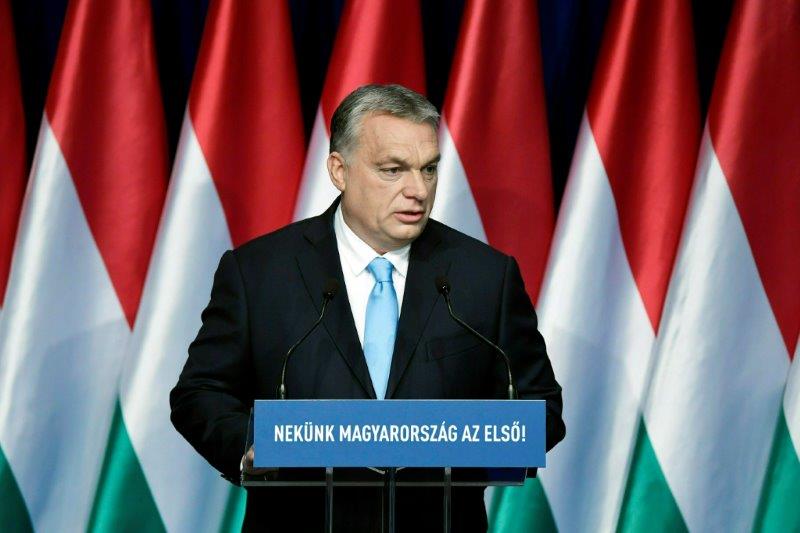LUXEMBOURG (CN) - Hungarian regulations on nongovernmental organizations conflict with European Union law, a European Court of Justice magistrate held Tuesday in the latest in the clash between the EU and Prime Minister Viktor Orbán.
Requiring NGOs to register with Hungarian courts and disclose the names of their donors “intrudes radically into the sphere of the privacy safeguarded by the [EU Charter of Fundamental Rights],” Advocate General Manuel Campos Sánchez-Bordona wrote in his nonbinding opinion.
The Hungarian government claims that the 2017 law is designed to fight the funding of terrorism and will increase transparency among nonprofit groups, but critics argue its real purpose is to allow Orbán to crackdown on opposition groups.
“The fact that the advocate general has also found the law to be illicit has reinforced our confidence that the anti-civil law, tailored against organizations which dare to criticize the government, will fall at the EU's Luxembourg court,” Amnesty International Hungary, the Hungarian Helsinki Committee and the Hungarian Civil Liberties Union said in a joint statement.
The European Commission, the EU’s cabinet body, brought the case against Hungary in 2018. Though opinions from the advocate general are nonbinding, rulings from the EU’s highest court frequently follow the same legal reasoning.
The law – nicknamed the “Stop Soros” law after Hungarian-American billionaire George Soros, who funds pro-democracy activism across the globe – requires NGOs operating in Hungary that receive more than 7.2 million forints, or $24,000, in foreign donations per year to register with the government and identify themselves as foreign-funded in any publicity materials. Any foreign donor who gives more than 500,000 forints, or $1,670, per year would have to be listed by name.
In his opinion, Sánchez-Bordona found the financial threshold “excessively low” and said the restrictions violate the free movement of capital within the EU. He also wrote there are sufficient EU regulations against terrorism financing.
Orbán won a third term as prime minister in 2018 on a platform of fighting what he claims is foreign meddling in Hungarian politics. The law at issue is thought to be aimed in part at the Open Society Foundation, Soros’ philanthropic organization that funds social justice organizations around the world.
Orbán said in a national address last week, "In every single European institution there are politicians influenced by George Soros."
Soros survived Nazi-occupied Hungary as a child before making his fortune in investing. His charity has the second-largest private philanthropy budget in the United States, following the Bill and Melinda Gates Foundation.
The case is the latest in the conflict between the EU and Hungary’s far-right leader. Orbán’s government has been criticized by the bloc for its handling of the 2015 migrant crisis, during which Orbán built a wall along Hungary’s border with Serbia to stop migrants from the Middle East from entering the country. He’s also been criticized for cracking down on opposition groups and restricting freedom of the press.
The European Court of Justice is expected to issue its final ruling on the case this year.
Subscribe to Closing Arguments
Sign up for new weekly newsletter Closing Arguments to get the latest about ongoing trials, major litigation and hot cases and rulings in courthouses around the U.S. and the world.









